John F. Pyfer, Jr. has gone from being a super lawyer to an orchid grower. He pinpoints his love of nature and respect for conservation to his lifelong involvement in scouting. He honors the county he loves through volunteerism. Like the world in which we live, it seems all his interests have become interconnected.
You could say John’s love of orchids grew out of his stressful career as an attorney. In an effort to find a relaxing diversion, he became a collector of trains and clocks. “Nothing clicked,” he says. The issue was resolved in the late ‘80s, when he discovered the allure of orchids. “You know how that goes,” he laughs. “One plant led to another and soon I was in trouble. A sickness took hold that has yet to let go.” To accommodate his obsession, two greenhouses sprang up in the Pyfers’ backyard.
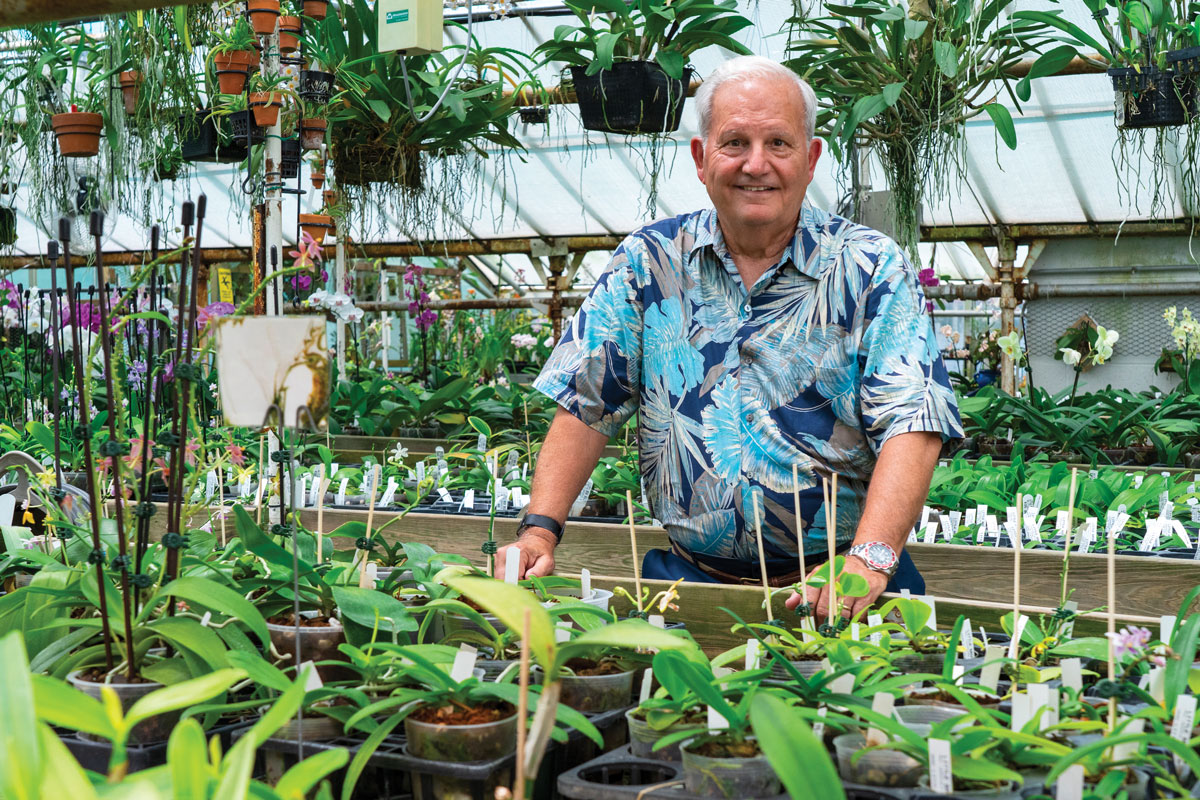
John Pyfer turned a hobby into a thriving business when he and son, Trey, and wife, Carol, launched Pyfer Greenhouses and Little Brook Orchids 15 years ago. Today, Little Brook is the largest grower of orchids in the Northeast.
In an article that appeared in Pennsylvania Super Lawyers magazine (2004), John’s friend and fellow orchid enthusiast, Gary Hawbaker, observed, “It’s the challenge of rescuing them that attracts John to orchids. He’s a great rescuer.” He backed up those sentiments by saying nothing motivated John more than buying deeply discounted plants that were in terrible shape and saving them. He also made the observation that whether John was representing clients or growing orchids, his ultimate goal was achieving a successful outcome.
While growing orchids brings satisfaction, John says he derives the most pleasure from providing orchids with a solid foundation and nurturing environment, i.e., the potting and re-potting process. “I can come in here early in the morning, become lost in my work and the next thing I know, it’s time for dinner,” he explains of working in his greenhouses at home. “I’ve never found anything that’s more relaxing.”
It would also be fair to say that John’s interest in law and orchids was his destiny. His mother, Myrtle, was a long-time justice of the peace in Willow Street. As a child, John would “sit in” on his mother’s cases by hiding under her desk. Later, they would “argue” the merits of the case. After earning his law degree from Vanderbilt University, he returned to Lancaster, eventually launching his own practice; his Willow Street office is located in his childhood home.
As for gardening, he inherited his green thumb from his father. “My dad had 10 green thumbs,” he notes. “He could grow anything, but roses were his favorite. Me, I like perennials.”
As the new millennium dawned, John’s orchid collection had outgrown the confines of the two greenhouses. His wife, Carol, saw the wheels turning in his head and decreed that a third backyard greenhouse was out of the question. “So, I started looking around,” he recalls. His search led him to Rider Avenue, where he made a deal with Ken Fries to rent two of his greenhouses. Two years later, Fries offered to sell John the entire complex of eight greenhouses. The wheels started turning again; John saw it as an opportunity to launch a business devoted to all-things orchid.
After two years of renovation work and building an inventory, John was ready to launch his business. Fortunately, he found a business partner in his son, Trey, who had just returned to Lancaster after living and working on the West Coast for 10 years. He, too, had inherited the Pyfer green thumb. Unlike most teenage boys charged with home lawncare, Trey had always enjoyed such chores and liked helping his father with his plants and flower beds. Carol signed on to be the company’s CFO.
They needed a name for the business. Knowing that his father always included “Little Brook Orchids” on the name tags he attached to his plants, Trey suggested that as the name. And, so, Pyfer Greenhouses/Little Brook Orchids took root.
From the moment it opened, Little Brook became orchid central. Today, it is the largest grower of orchids in the Northeast. “All the credit goes to Trey,” John says. “He’s the one who developed it into a thriving business.”
Trey is a walking encyclopedia where orchids are concerned. While his father considers orchids to be the perfect accent plant, Trey appreciates them for their “alien” appearance. “You’ll find orchids growing all over the world, including the Arctic,” he says. Trey is also a bug master and explains his expertise is a result of lots of research and self-education. “You could probably eat off the floor in this place,” John says of Trey’s dedication to the health of the orchids.
Trey also developed several side businesses including re-potting and boarding services. The latter has become an integral part of the business. Clients include plant lovers who turn their prized orchids over to the Pyfers when they are not blooming, as well as those who may travel for extended periods. “Residents of area retirement communities love what we offer,” John says of clients who head for warmer climes during the winter.
Then, there are clients who over-winter their tropicals – lemon trees, over-sized palms, bougainvilleas, etc. – at Pyfer Greenhouses. “Some of the plants we take care of represent major investments for the owners,” John says. “They don’t fare well in the house or in a basement over the winter. This is like a spa for them. When they’re ready to leave here for the summer, they look great and often have a two-week jump start on other plants.”
Another offshoot of the business entails providing area businesses and social clubs with orchid-centric displays. Gift arrangements are another specialty. Trey also conducts in-house workshops and presents lectures to garden clubs and orchid show attendees.
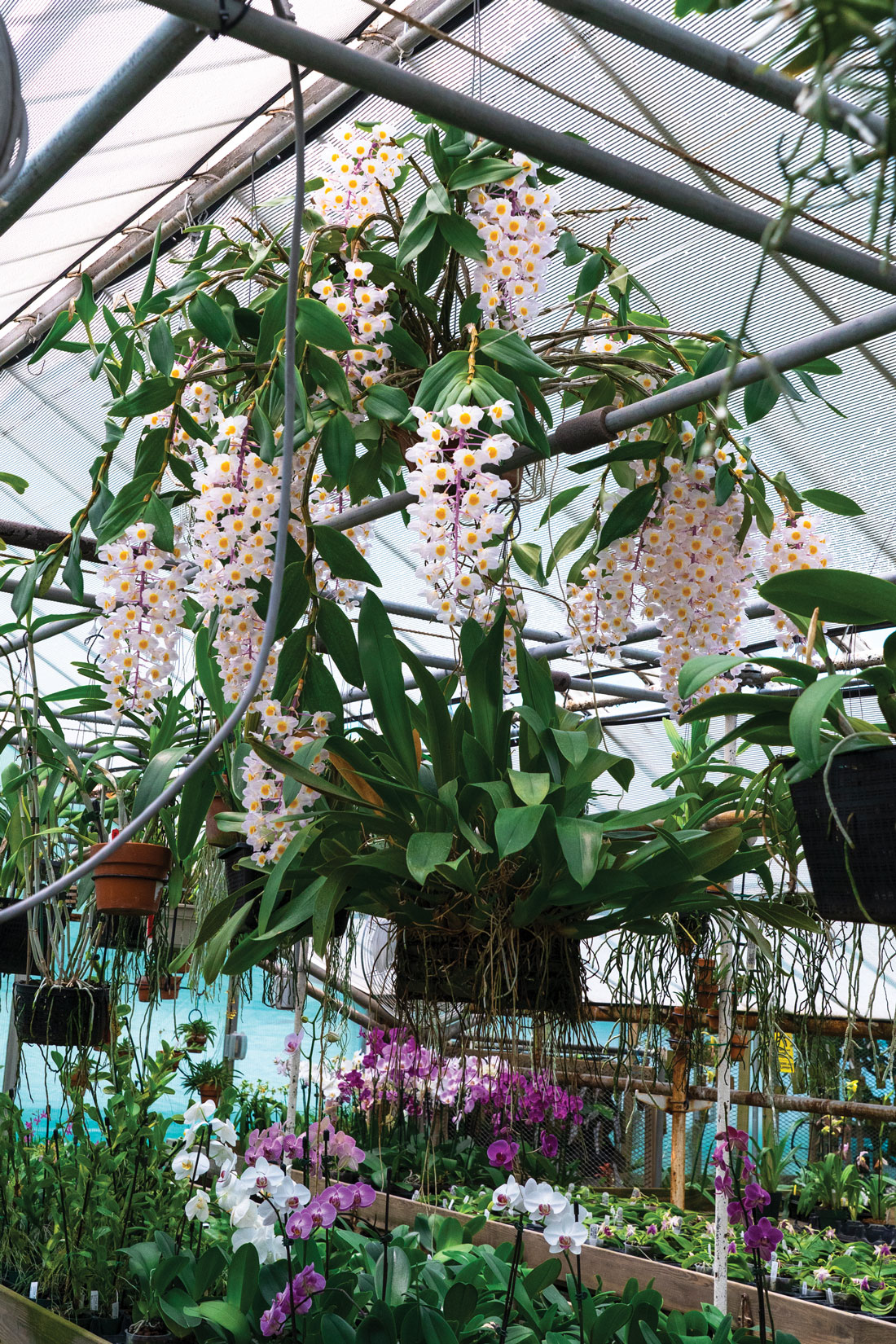
The roots of many varieties of orchids prefer to wind over rocks and wrap around trees and other structures than be pot-bound.
According to the Pyfers, orchids constitute a world all their own. Orchid mania can be traced back to the Victorians who so loved them that many hobbyists and collectors added conservatories to their homes in order to provide their plants with optimal growing conditions. The development of tissue culture in the early 1900s aided in their popularity. “There’s a lot of history connected to orchids,” John says.
Their allure is attributed to flowers that bloom in a kaleidoscope of colors, exotic fragrances and, for avid collectors, lineage. “Some of our clients have sizable collections, while others have heirlooms they inherited,” John says of the devotion that is paid to them. “People who board their orchids with us will stop in to visit them and check on how they are faring.”
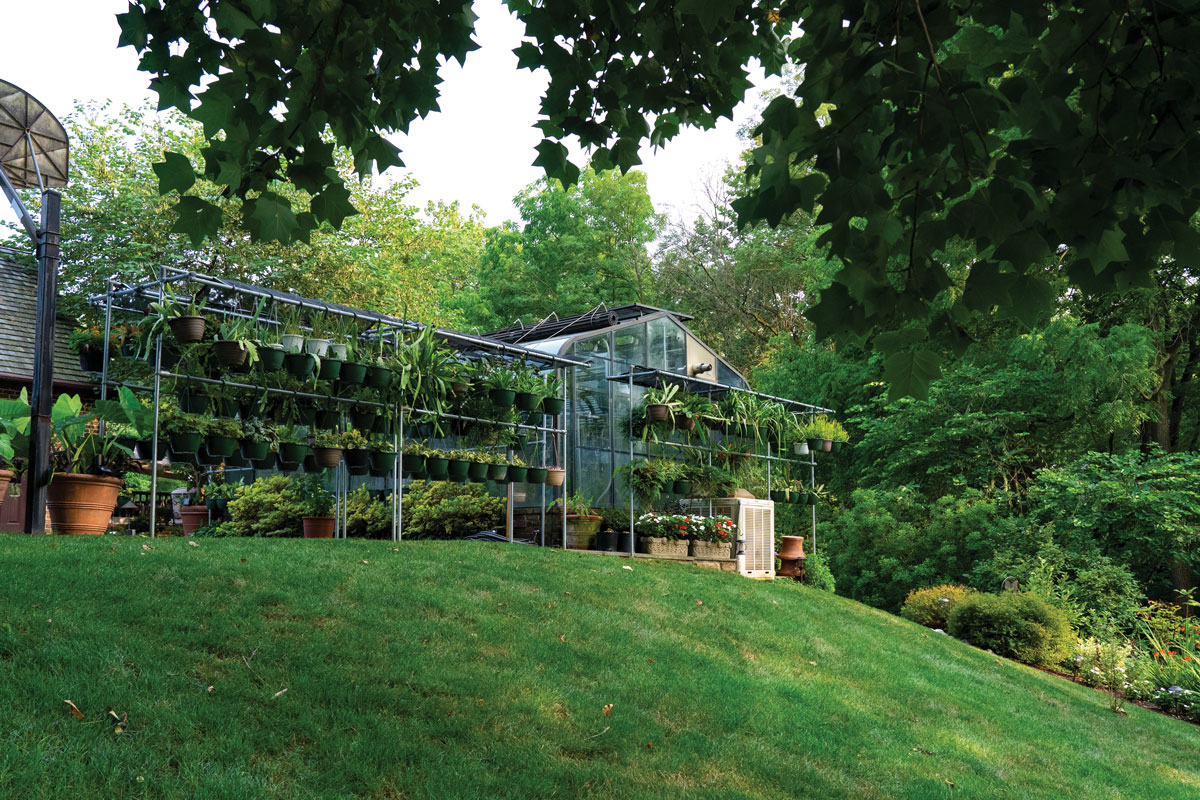
The Pyfers’
summer garden blooms with daylilies, hosta, begonias, lantana and other flowering plants. Ferns and tropical plants such as palms, which overwinter in the greenhouses, add to the displays.
Then, there’s the competitive aspect of growing orchids. During the blooming season – November through March – shows are held. Envision a Westminster-style show for orchids. The Pyfers travel the circuit, as both competitors and vendors. During this year’s Susquehanna Orchid Society show at Hershey Gardens – one of the last to be held due to the coronavirus – Little Brook claimed Best in Show and Best Commercial Exhibit honors. “Little Brook has won 28 awards from the American Orchid Society,” John says. “I also enter a lot of plants at the West Lampeter Fair every year. It’s just something I like to do.”
There’s also the social aspect of orchids. “We’ve met people and have made connections with growers from all over the world,” John says, adding that the grower connections enable Little Brook to stock the latest hybrids. “This is a close-knit industry,” he says.
The social connection also draws visitors to Little Brook from up and down the East Coast. “Oh, they come from Manhattan, Philadelphia and D.C.,” he reports. John takes pride in a note Trey recently received from a visitor from Lynchburg, Virginia, who wrote, “I wanted to share a little JOY with you in this rather stressful time.” She told of visiting the greenhouses on a dreary day last spring and engaging in “a wonderful conversation with a gentleman who was very helpful and encouraging. I explained I was a green-behind-the-ears newbie orchid enthusiast. I had recently been bitten by the Orchid Fairies and was now a hopeless addict. I asked the gentleman so many questions, I do believe he was relieved to know I lived in Virginia and would not be able to be there very often.” She went on to report that her collection has expanded to include more than 130 orchids.
Little Brook’s success has been further fueled by the resurgence of houseplants. According to the 2019 Trends Report published by Kennett Square-based Garden Media Group, houseplants have officially become a craze. In 2018, 30% of all households in America bought at least one houseplant. Pinterest searches relating to houseplants surged 90%.
Credit goes to the Millennials – the indoor generation – who, according to the New York Times, view plants as a component of their well-being. As they become more proficient “plant parents,” the Millennials are spreading their wings beyond succulents and venturing into tropical plants. “We certainly have something for everyone here,” John notes. “And, we’re more than willing to educate people on the care of orchids.”
So, what happened to the two greenhouses in the Pyfers’ backyard? Be assured, they are not languishing. You could say they have become John’s man cave. “I became interested in wildflowers, so I use the greenhouses for growing, potting and transplanting them. I’m out there 10 minutes and I’m totally oblivious to what’s going on,” he explains. The wildflowers grow in a wooded area of the property that John calls “Shenks Ferry North.” He adds, “It’s just beautiful here in the spring.”
Orchids also prompted an interest in other tropical plants that are used to enhance the landscape and patio during the warm-weather months. The greenhouses provide storage for them over the winter. In keeping with the tropical theme, a large koi pond is on the premises.
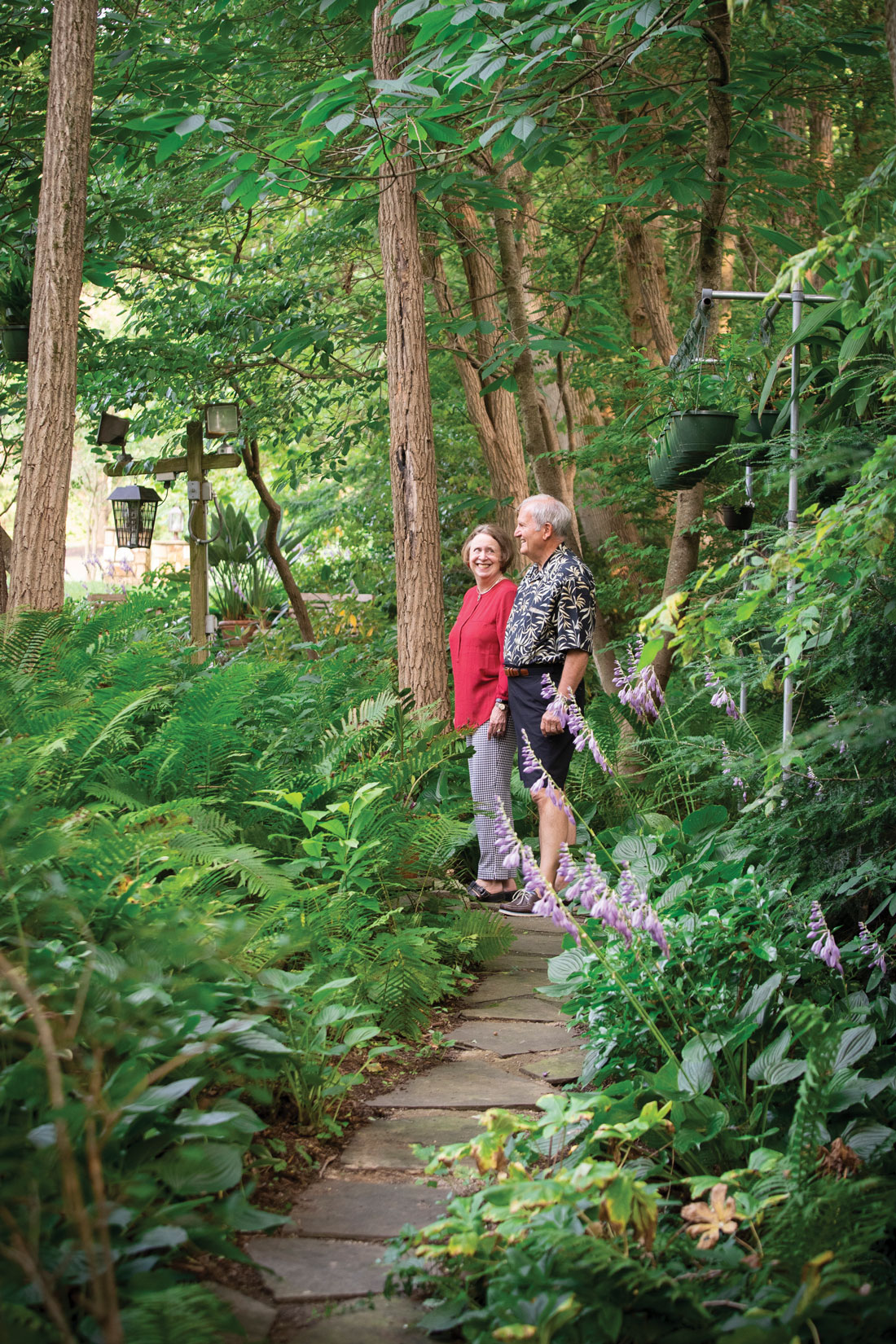
John and Carol take an evening walk through the wildflower preserve that spans the back of their property.
The Pyfers love to share their gardens and often host garden clubs, church groups and nonprofit organizations at their home. “I hate to see anything go to waste,” he says, noting that sentiment can be attributed to his lifelong involvement in scouting. “I was so excited to become a Cub Scout,” he says of joining Pack 58, Den 3, which was sponsored by the Willow Street United Church of Christ, at the age of 8. In 1962, he earned his Eagle Scout ranking. (Trey is an Eagle Scout as well.)
Scouting has enabled John to travel the country and the world. Having earned the honor of being named a Distinguished Eagle Scout, he says scouting has had such an impact on his life that he begins each day by reciting the Scout Law and ends each day by asking himself if he lived up to the Scout Oath.
An interest in conservation prompted John to become involved with the Lancaster Conservancy. Today, he serves as the organization’s chairman of the board. The Pyfers also gifted the Conservancy with a 20-acre preserve in the Southern End that once served as John’s family’s getaway. “My father had a lot of fun there as a boy,” he says. Trey also has fond memories of the woodland getaway on which his grandfather had built a cabin.
The organization, which is celebrating its 50th anniversary, oversees more than 40 nature preserves that are open to the public. They have become magnets for people seeking to commune with Mother Nature during the coronavirus pandemic. “The Lancaster Conservancy is a remarkable organization,” he says of the staff and volunteers. “I couldn’t be happier to be the chairman of its board.” He’s especially excited by the recent acquisition of 20 additional acres at Climbers Run Nature Center. “It’s a wonderful education center,” he says.
Little Brook Orchids is located at 25 Rider Avenue in Lancaster. Normal hours are Tuesday-Friday, 10 a.m.-5 p.m., and Saturday, 10 a.m.-2 p.m. Because of the coronavirus emergency, the shop/greenhouses have been closed to the public. We would suggest you call or visit Facebook for updates. Details: 717-394-1000, littlebrookorchids.com, or facebook.com/littlebrookorchids.

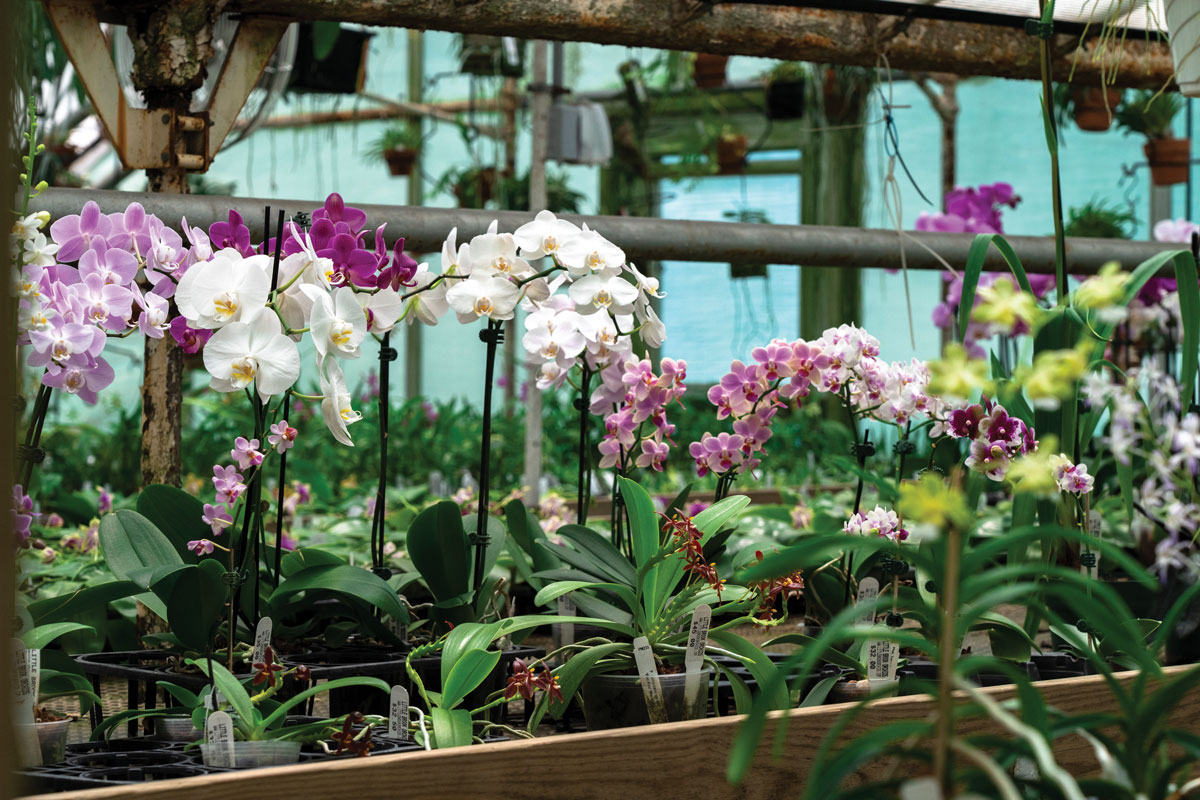
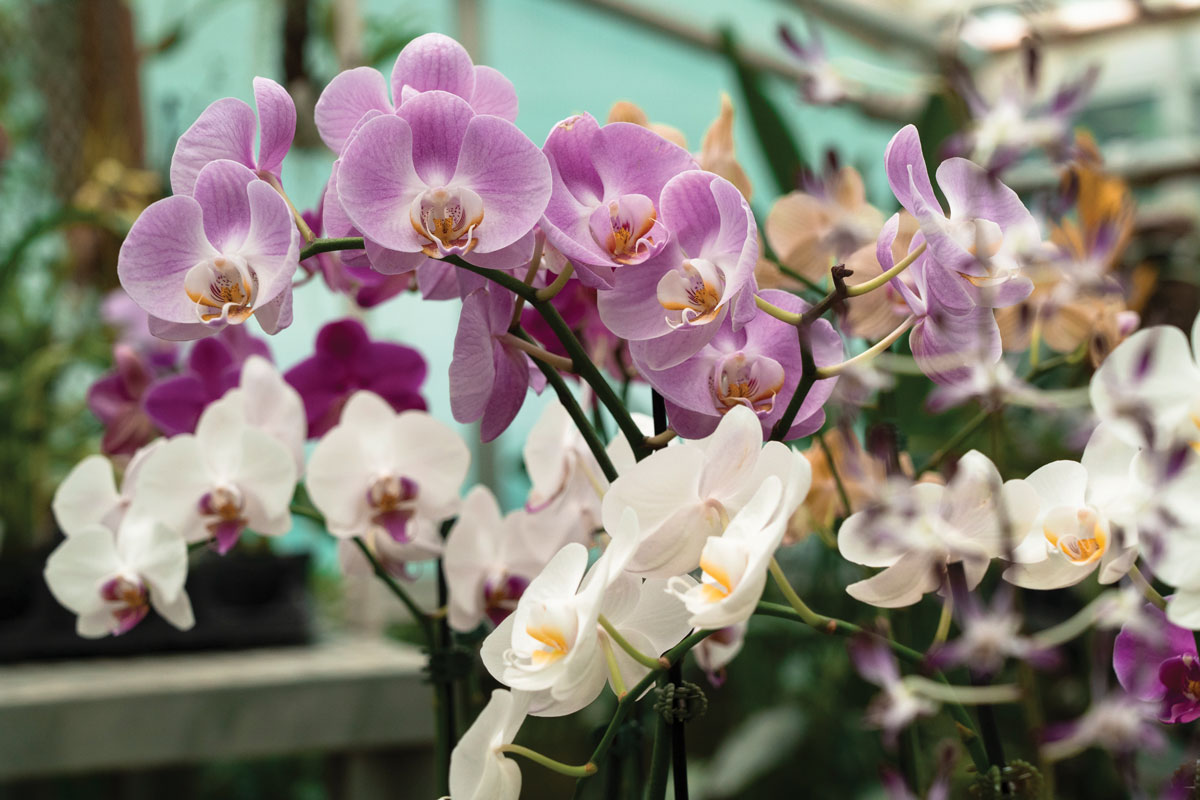
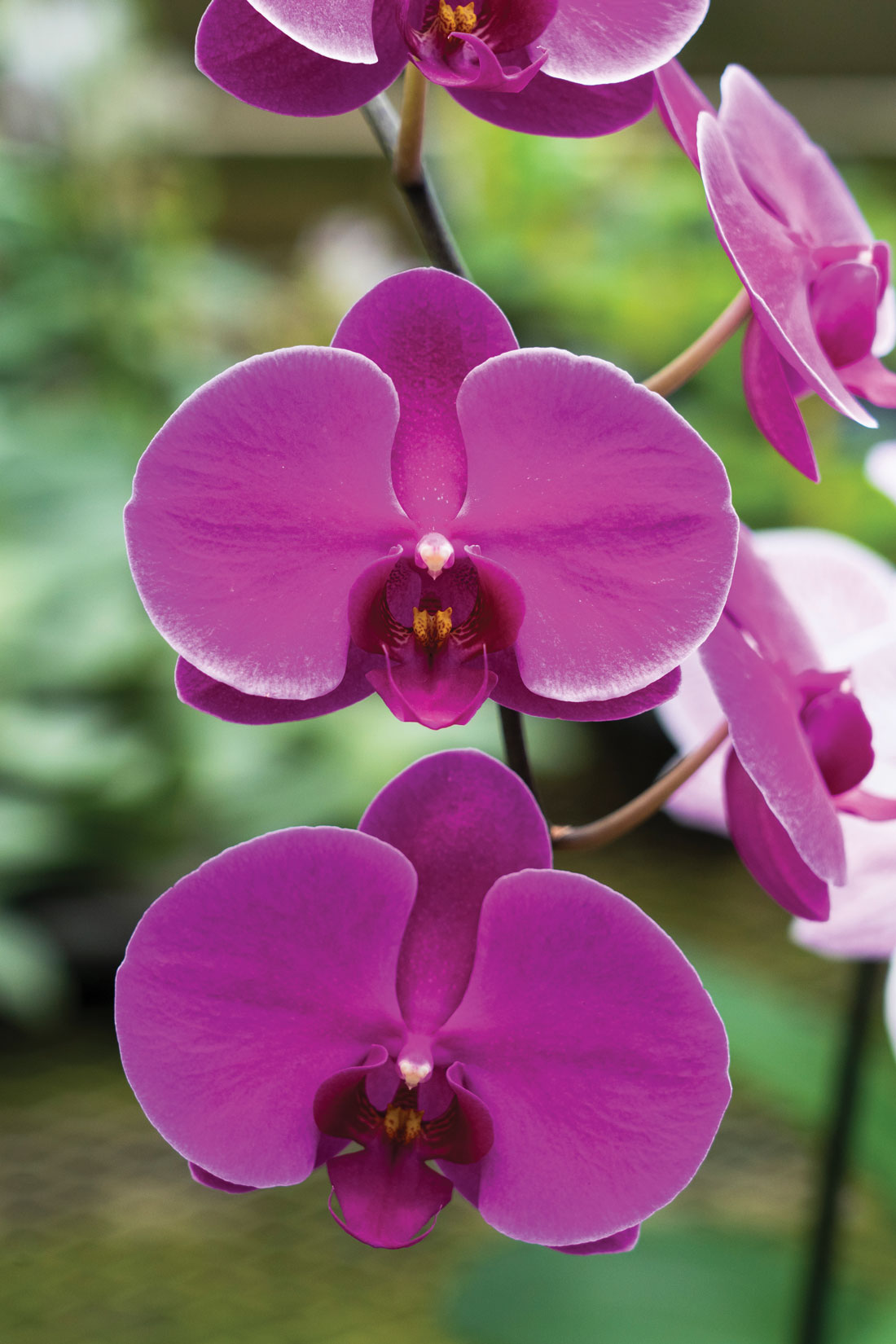
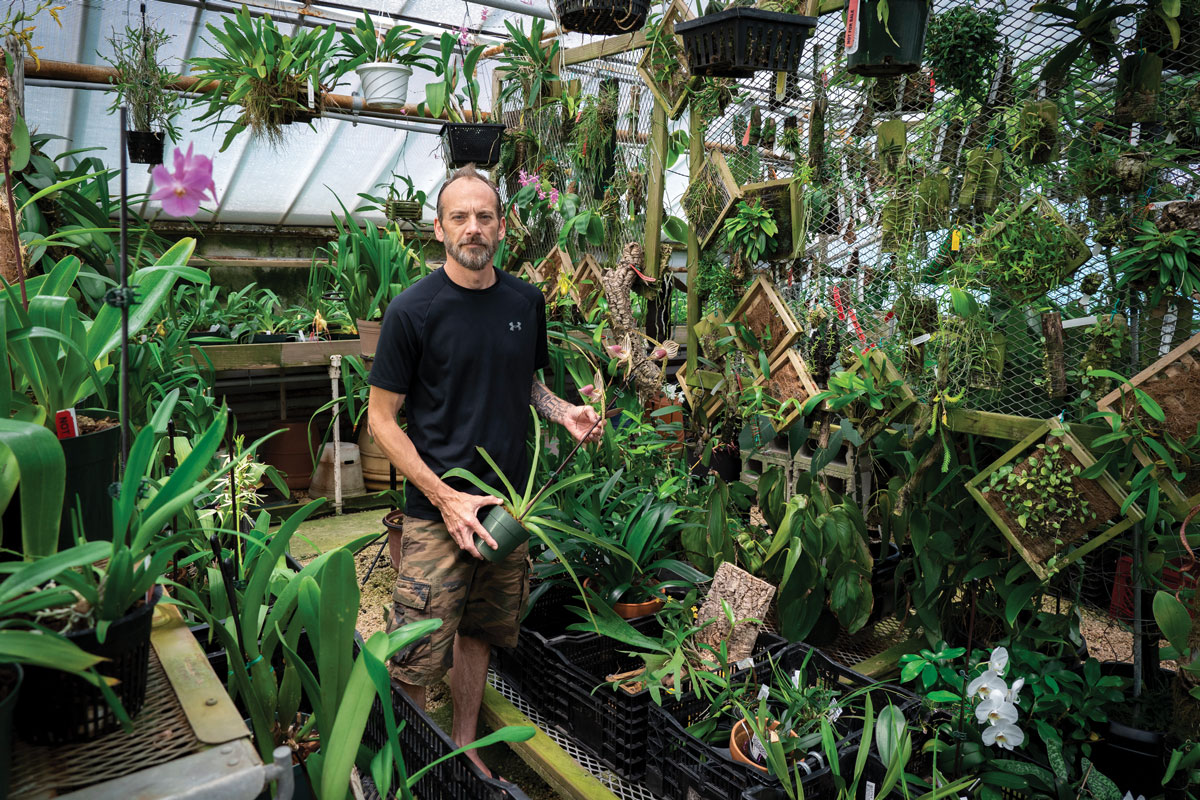
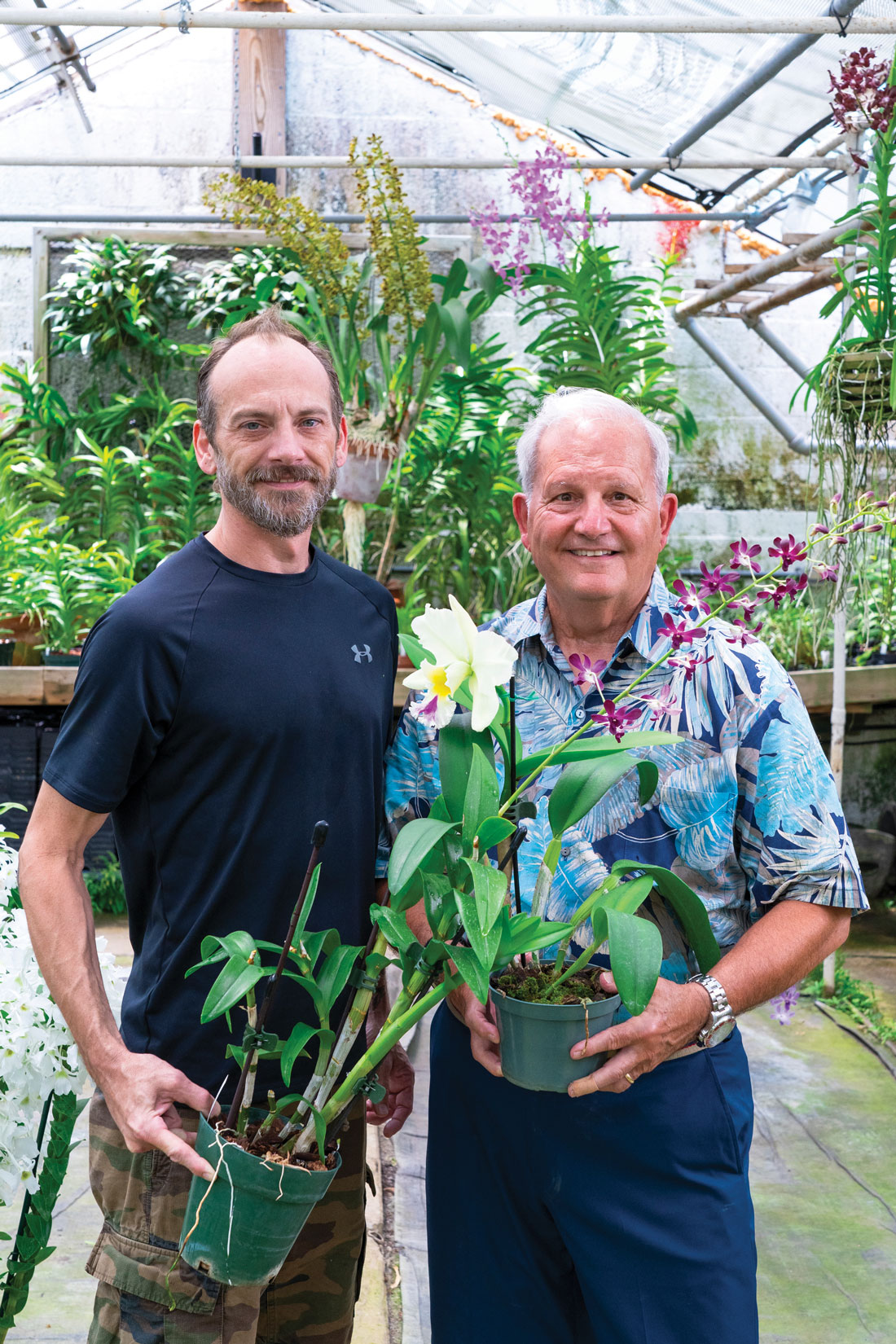
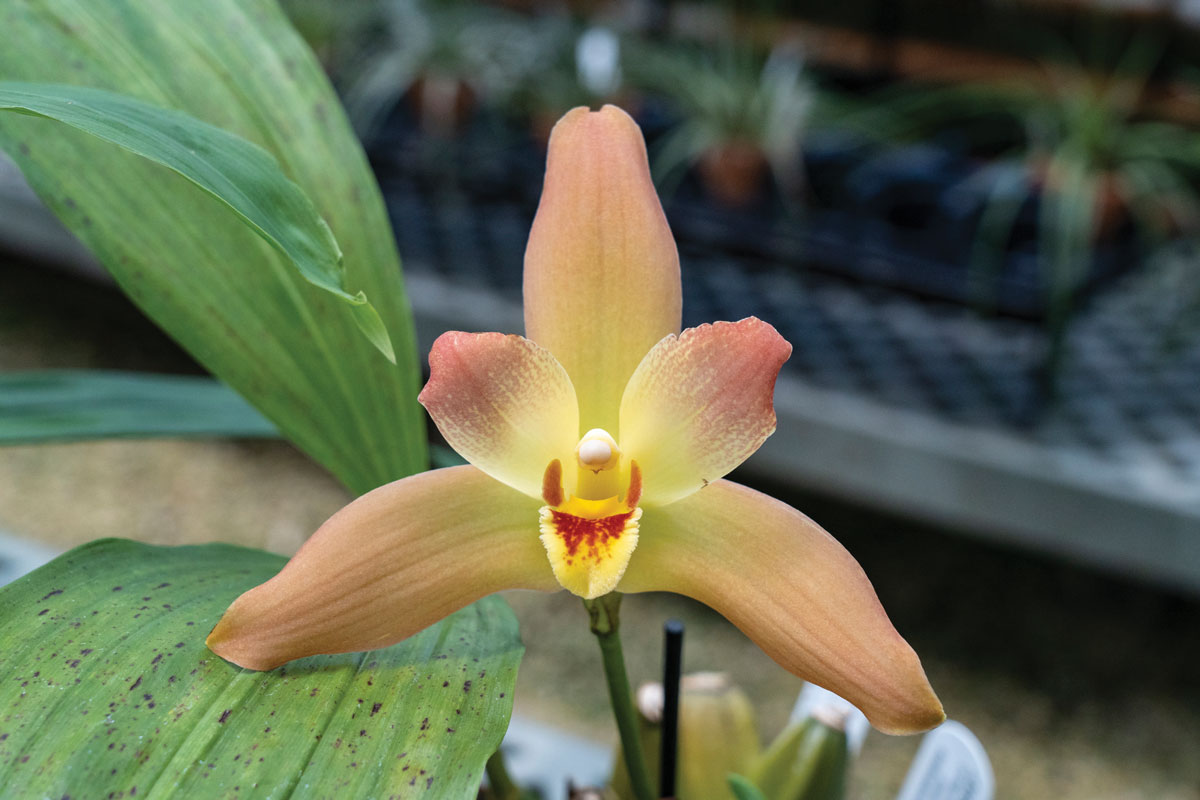
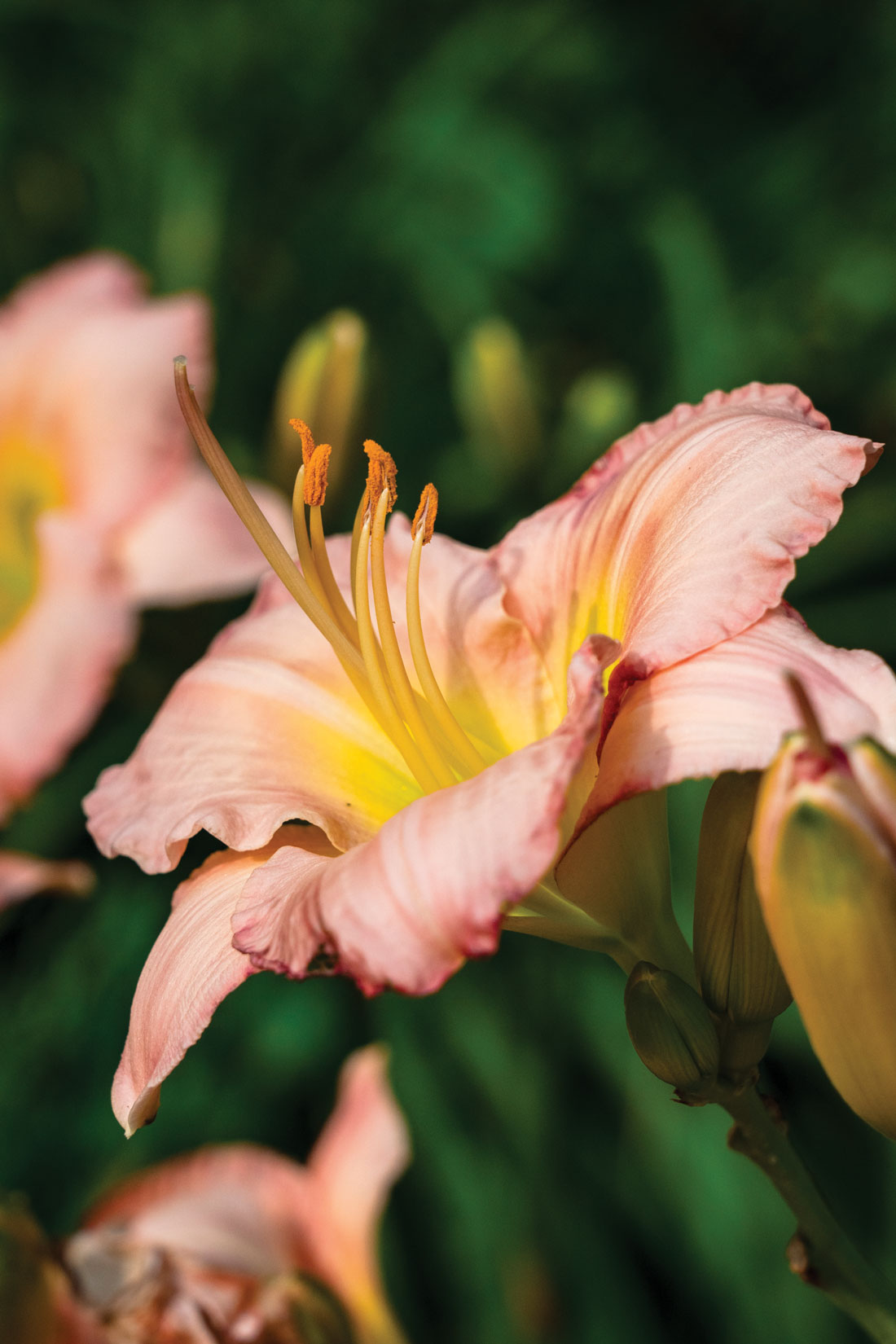
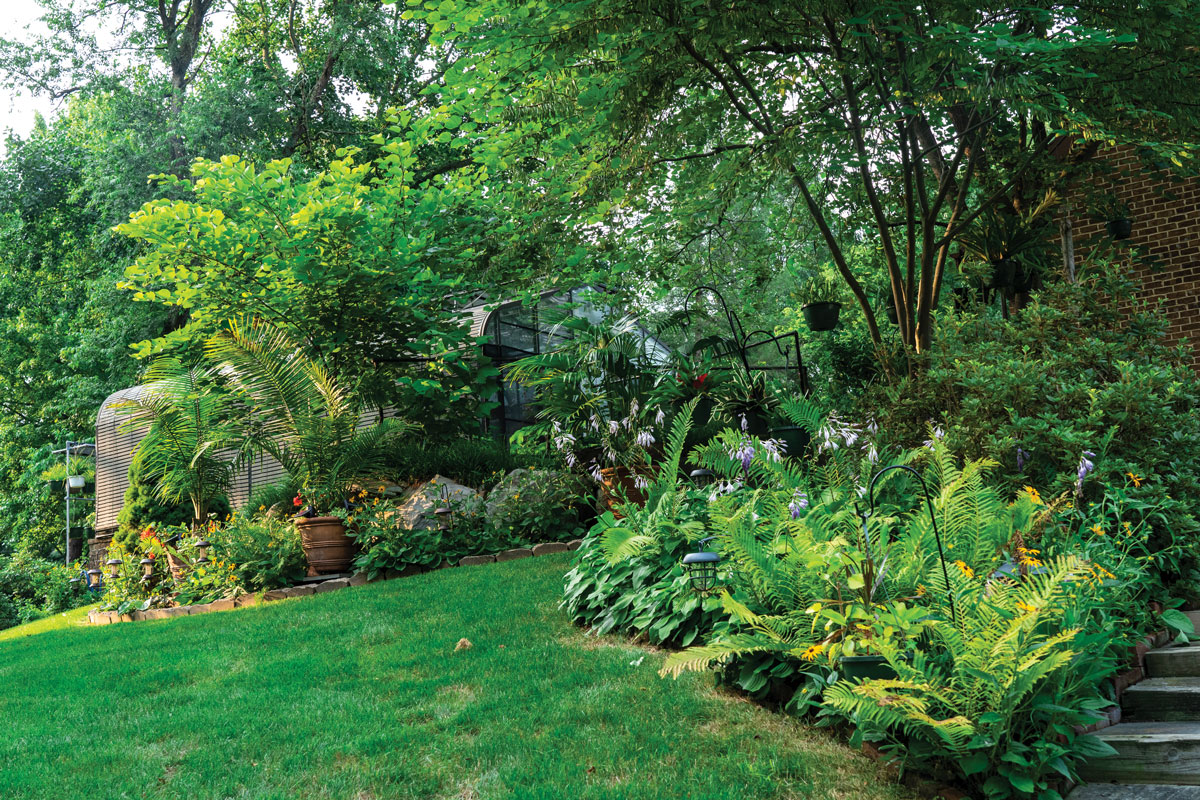
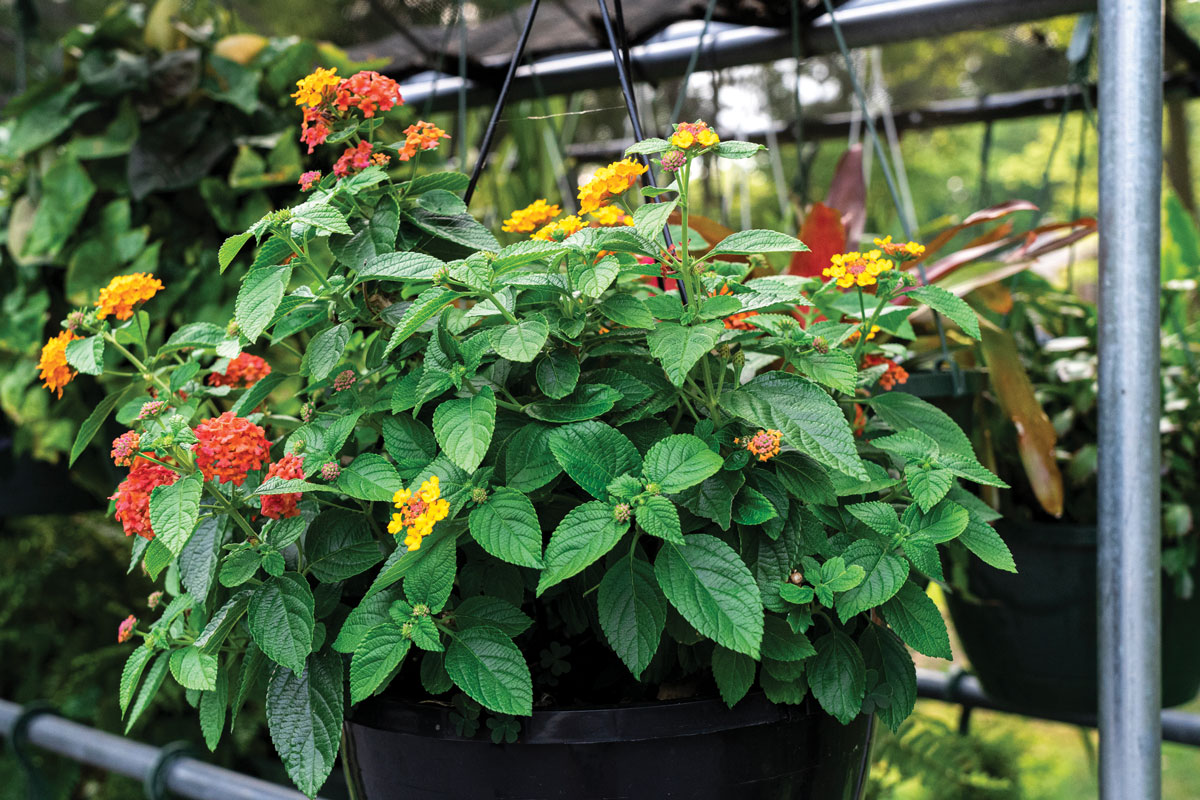
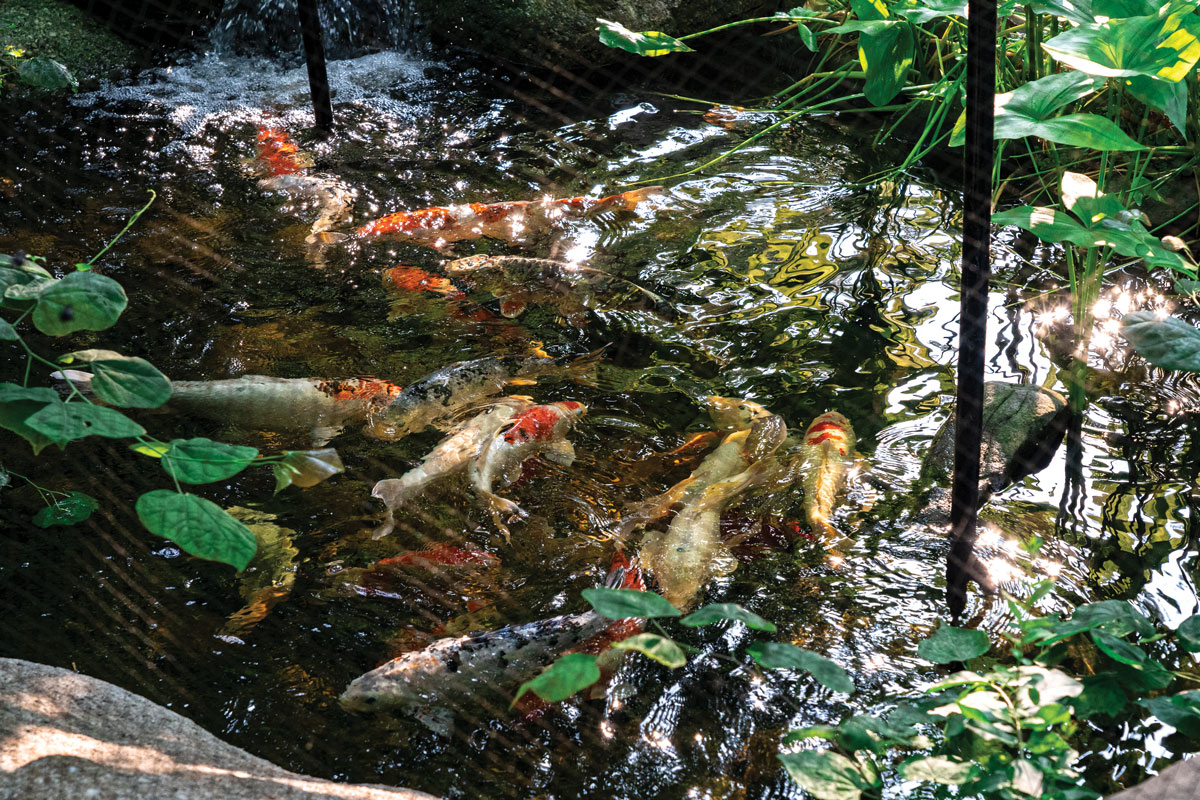
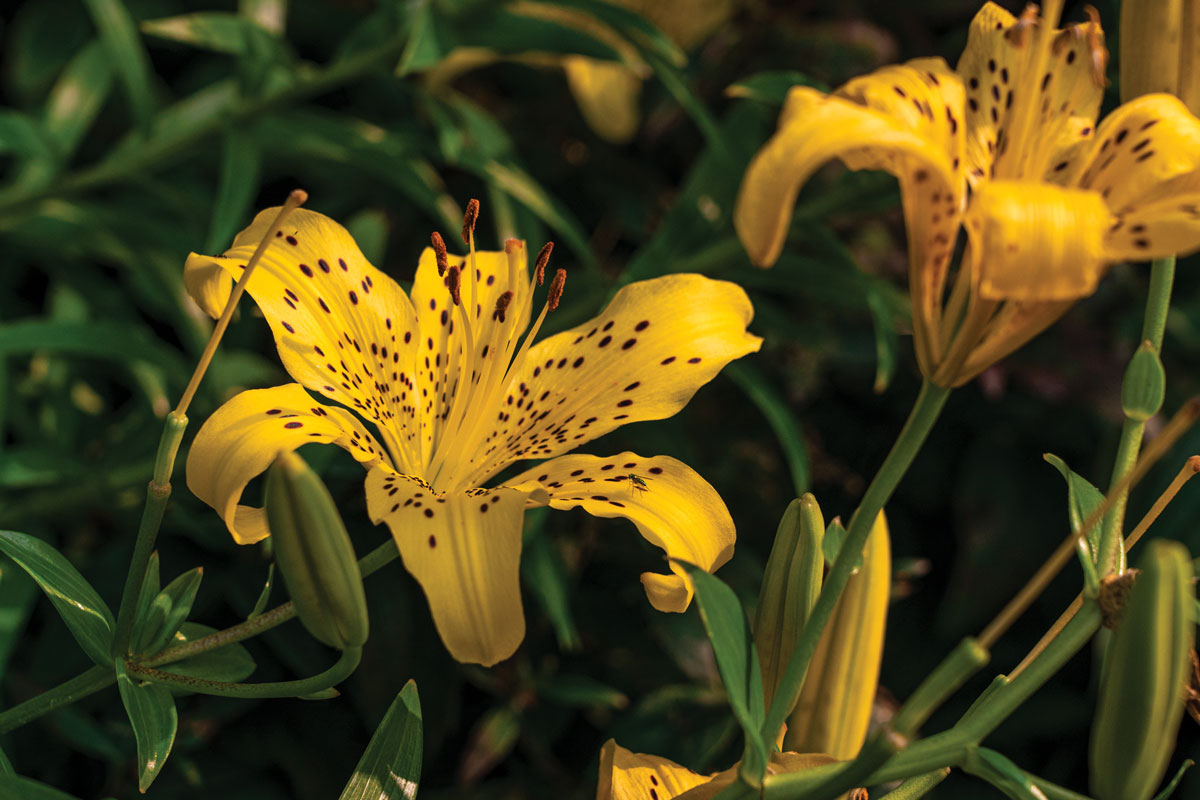
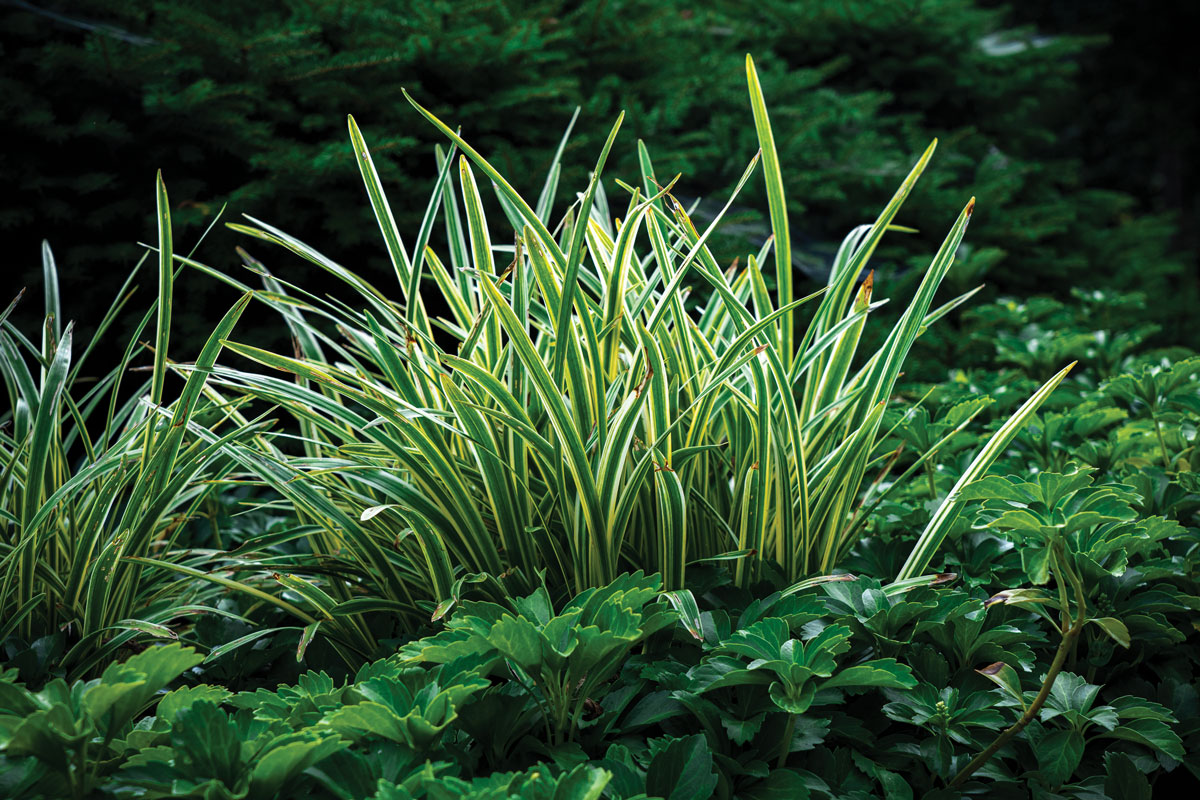
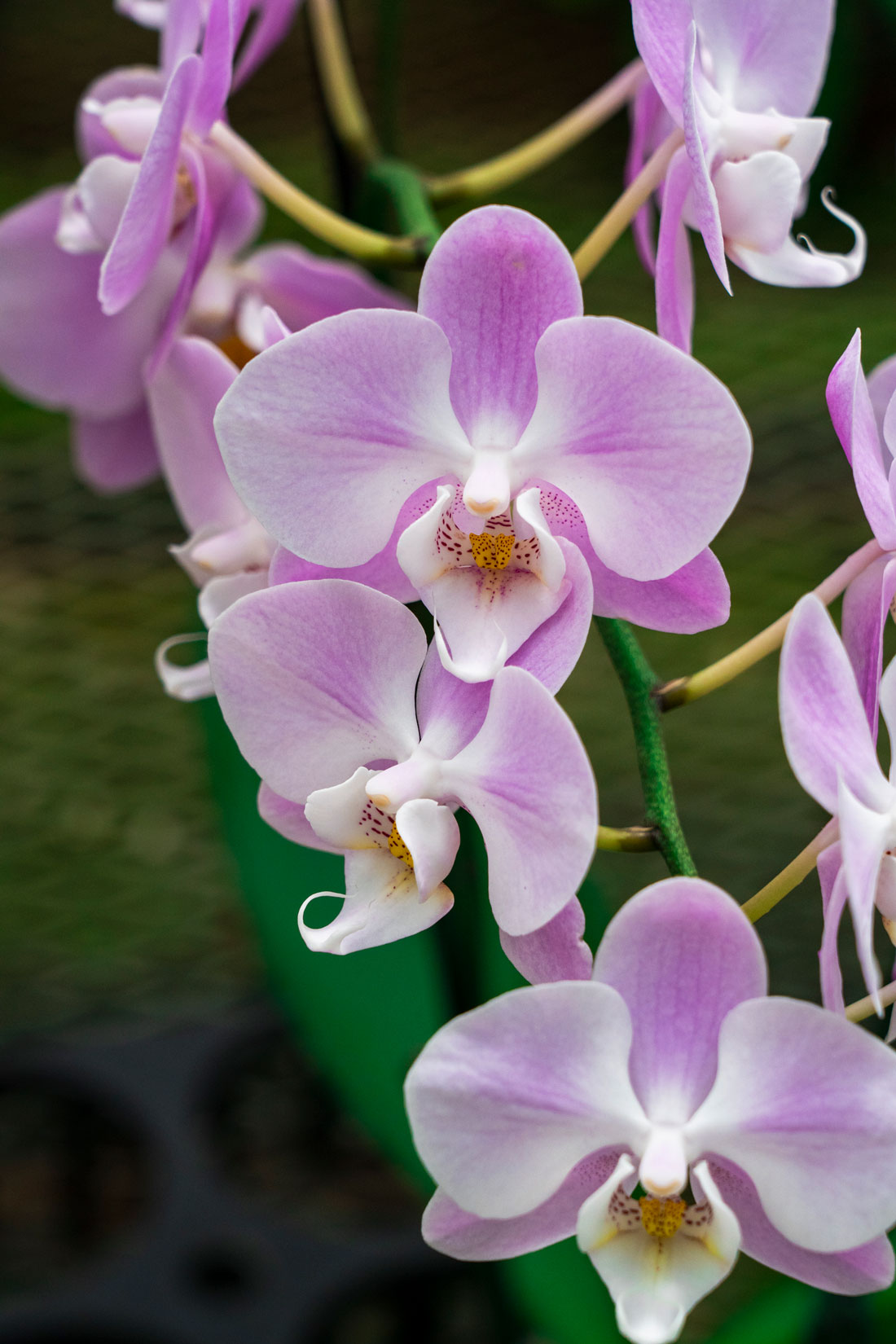
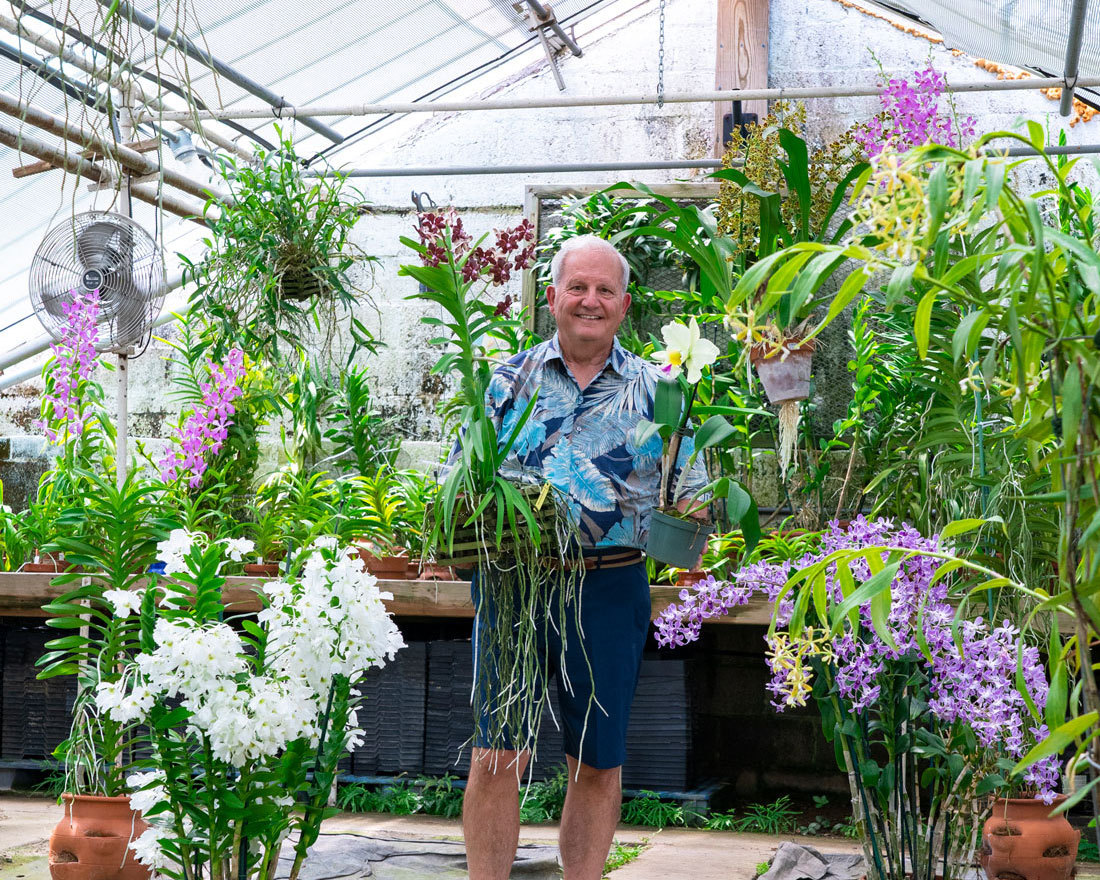
How remarkable. You have created such beauty. My only criticism of the article is that there are too few pictures of your lovely wife, Carol.
Hugs!
Fantastic article ! Congratulations to Carol, John, and Trey for building a wonderful business model; and for being recognized for their achievements. Knowing John’s love of nature and conservancy, his desire to be actively involved in volunteerism, and his life-long interest in Scouting; makes me proud to call him a good friend. Wishing John, Carol, and Trey continued success! ( Thanks for adding the photos in the article – BEAUTIFUL !! )
I found this so very interesting and exciting. How wonderful to be surrounded by such beauty while enjoying retirement from the legal world.
I share your love of what always brightens my home when I m lucky enough to receive e one
Stay well and safe and keep growing them.
My best to your wife
Sincerely
This is an absolute treat when in the area. The variety of both common and rare orchid types is extensive and all so very healthy! A must visit any time!
Hello John
My name is William Pyfer. My father Earl Pyfer was from the Lancaster area so I think we must be related. It’s good to see the name Pyfer associated with so much success and doing good things for himself and others. I had some success myself in life and I am comfortably retired. It would be nice to meet you and your family someday